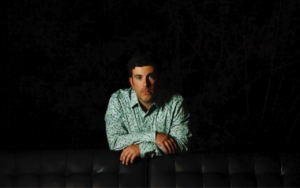Avoiding mud in your mix with more precise reverb decay and pre-delay.
Have you wrestled with getting the right reverb in your home recordings?
Does your reverb start piling up on itself, making the lyrics harder to hear?
Do you feel like you have to either sacrifice vibe or clarity in your vocals?
It might not be the wrong reverb, but rather the wrong timing of these settings:
- Pre-delay – how fast or slowly your reverb kicks in
- Decay – how long your reverb lasts
It’s the interplay and timing of these two settings that can give your vocals both forwardness AND depth.
How long do you want your reverb to wait before it grabs hold of the source sound?
That’s your pre-delay!
A short pre-delay will have a “natural” sound, as if the singer is in a room with consistent reverberation (regardless of whether that reverb sounds big or small.) With this shorter pre-delay, your reverb is audible almost from the very start of the vocal phrase.
A longer pre-delay, on the other hand, will allow the vocal attack to cut through on its own; then the reverb will appear a bit later in the phrase.
How long do you want your reverb trails to last?
Your decay setting determines the duration of the reverb, which can also sometimes have an effect on how “big” the reverb sounds.
The problematic pileup I mentioned earlier is a common issue when mixers set too long a decay, so reverb from the previous phrase overlaps with the next vocal line.
Setting the right timing for decay and pre-delay.
In the video above, artist and producer Devvon Terrell reveals his trick for setting pre-delay and decay in relation to the song’s BPMs. His technique adds spacial depth to the vocals, but causes the reverb to subtly disappear right before the next vocal line occurs.
You’ll have to do a bit of math, but he’s a good teacher and shows you a quick hack to avoid your calculator. Check it out! And if you want to hear his original music, go HERE.
NOTE: He uses a Valhalla reverb (which are great), but you can copy his technique using pretty much any reverb.

